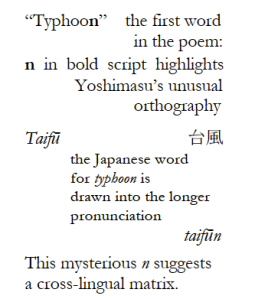Translator: Mary Frank | Author: Ottokar Domma | Work: Der brave Schüler Ottokar | Original Language: German | Genre: Fiction
Als die Mädchen alle wieder angekleckert kamen, befanden wir uns schon in einem Raum mit einem älteren freundlichen Fräulein, welches zum Museum gehört. Sie sprach: Liebe Kinder, wir stehen hier in der Abteilung des Altertums. Und dann zeigte sie mit einem dünnen Finger auf alte Töpfe und Scherben. Manche waren mit Mustern bekritzelt, manche auch nicht, und man fand sie in einem Hühnergrab.
By the time all the girls came trotting back, we had already got to a room where there was a friendly old lady who belonged to the museum. She declared: dear children, here we’re in the antiquities section. And then she pointed with a thin finger to old jars and broken bits. Some had patterns scratched on them, others didn’t, and they were found in a mega triffic grave.
Der brave Schüler Ottokar (1967) contains 29 stories about mischievous 12-year-old Ottokar’s life at home, at school and in his village in the German Democratic Republic (GDR). On the surface it is a work of children’s fiction. Yet the stories first appeared in satirical magazine Eulenspiegel, where they formed part of the magazine’s critique of those who failed to properly align with the principles of socialism. Their themes and linguistic features thus contain clear messages for adults.
The story Ein Besuch im Museum [A Visit to the Museum], from which this passage is taken, is typical of all the stories in its exploitation of language. Ottokar’s malapropisms, muddled-up proverbs, aphorisms, neologisms, mis-spelled and misunderstood foreignisms, markedly formal register and other linguistic ‘trickery’ appear on the surface to simply be typical of a rather precocious child’s emerging exploitation of language. They are in fact the veil under which Domma presents his critique. Ottokar’s use of language is anything but innocent. Instead, it is intended to satirise those who blindly repeat the formulaic and empty structures of official discourse. Ottokar’s ‘accidental’ linguistic trickery is a comedic replication of the very intentional linguistic trickery practised in all official contexts in the GDR, and thus a satirical comment on the malign effect of that trickery.
The exploitation of language is so central to the Ottokar stories that failing to render it is not an option. There are some occurrences where, serendipitously, German lexis and grammatical forms are sufficiently close to English for a relatively smooth rendering to take place. In another story, for example, Ottokar refers to a Hämorrhoidenschwarm [haemorrhoid shower]’ rather than an Asteroidenschwarm [asteroid shower]. The malapropism highlighted above is definitely not one of these cases. Here, Ottokar ‘accidentally’ confuses Hüne [megalithic] with Hühner [chickens]. My first instinct was to try to retain some connection with Ottokar’s misunderstood picture of an animal grave, but – unlike German – there seemed to be no term for an animal in English that had any lexical or aural connections with megalithic. Casting the net more widely, I was struck by the potential of mega to be (mis)understood in the mind of a 12-year- old in its figurative sense as big or really. And if Ottokar is ‘hearing’ a modern slang word in mega, might he also do so for lithic? This morpheme might perhaps sound to him like triffic, the slang for terrific. So a megalithic grave mutates in his mind into one that is mega triffic, slang for really, really good. As well as being (I hope) a humorous solution in its own right, humour is added by this phrase being incongruously uttered (in Ottokar’s understanding) by an elderly museum guide.
Mary Frank is a practising translator from German and French into English. She has an MA in Translation Studies from the University of Bristol and is currently undertaking PhD research into (un)translatability, using Ottokar Domma’s Ottokar stories as a case study.

